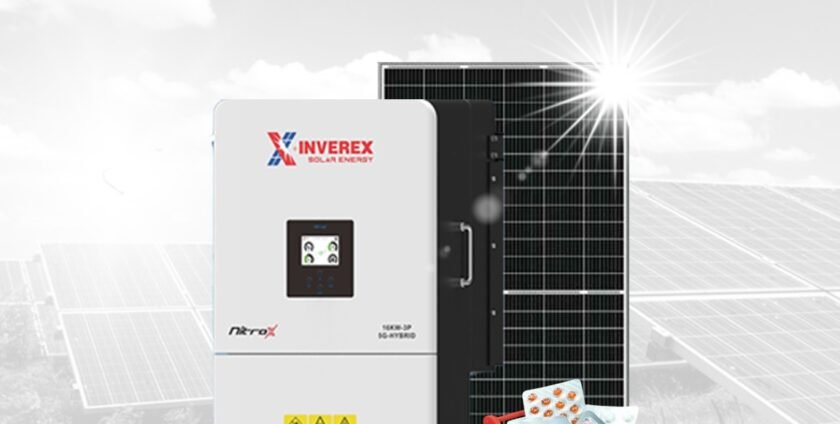
Solar Solution for Pharmacies in Faisalabad: Better Health Services with Reliable Power
Meta title: Solar Solution for Pharmacies in Faisalabad—Reliable Power for Better Health
Slug: solar-solution-pharmacies-Faisalabad
Meta description: Ensure uninterrupted refrigeration, lighting, and digital services—solar solutions for pharmacies in Faisalabad that reduce costs, increase reliability, and protect medicines. Learn how to choose the right system.
Pharmacies are a critical link in the healthcare chain. In Faisalabad—one of Pakistan’s busiest industrial and commercial hubs—pharmacies must keep medicines safely refrigerated, power diagnostic instruments, run computer systems, and provide clean, well-lit spaces for staff and customers. Frequent grid outages, voltage fluctuations, and rising electricity costs threaten safe storage and reliable service. That’s where a well-designed solar solution becomes not just an option but a necessity.
This blog explains why solar systems are ideal for pharmacies in Faisalabad, how to choose the right setup, practical benefits, financing and regulatory considerations, installation tips, and an SEO-friendly FAQ section that answers the questions customers and clinic managers search for most.
Why pharmacies in Faisalabad need solar power
-
Protect temperature-sensitive medicines. Vaccines, insulin, biologicals, and many liquid formulations require consistent refrigeration. Power cuts and voltage instability risk spoilage, financial loss, and worse—patient harm.
-
Keep digital systems and point-of-sale running. The pharmacy POS, inventory software, and even online order systems need steady power to ensure accurate records and uninterrupted sales.
-
Safety & comfort for customers and staff. Good lighting and ventilation improve patient counseling, reduce errors, and make your pharmacy a trusted destination.
-
Lower operating costs. Solar reduces monthly electricity bills and can stabilize forecastable energy expenses—especially important for small businesses operating on thin margins.
-
Environmental & reputation benefits. Solar reduces carbon footprint and signals commitment to community and public health, an increasingly important factor for customers.
What a pharmacy-grade solar system should include
A pharmacy’s energy needs are different from a household’s. Consider these elements:
-
Proper load assessment. Calculate total daily energy needs (kWh)—refrigeration, POS/computers, lights, fans/AC (if applicable), and occasional equipment (e.g., nebulizers). Include surge requirements for compressors.
-
Battery backup (preferred). Lithium or lead-acid batteries sized to cover critical loads during outages—typically 6–24 hours depending on risk tolerance.
-
Hybrid inverter/UPS functionality. Inverters that can switch to battery instantly ensure voltage-sensitive equipment remains stable.
-
Solar panels sized to match energy use and battery charging needs. Panels must generate enough to run daytime loads and recharge batteries.
-
Surge protection & voltage regulation. Protect refrigerators and electronics from spikes and sags when the grid returns.
-
Remote monitoring. Cloud monitoring alerts you to system health, energy production, and battery state-of-charge—useful for quick action if problems arise.
-
Professional installation and warranty. Work with certified technicians who offer product warranties and after-sales support.
Choosing the right system size—a simple example
(High-level example only; always get a professional site survey.)
-
Small pharmacy (basic fridge + lights + POS): ~3–5 kW solar, 4–8 kWh battery (covers overnight fridge + essential loads).
-
Medium pharmacy (multiple fridges, A/C, computers): ~6–10 kW solar, 10–20 kWh battery.
-
Large pharmacy (bulk storage, multiple ACs, heavy equipment): Custom design; consider 10 kW+ and large battery banks.
A proper energy audit will list devices, wattages, daily hours of use, and critical vs. non-critical loads so the designer can prioritize what must stay powered during outages.
Financial benefits & ROI
-
Lower monthly bills: Reduced reliance on the grid immediately cuts energy costs.
-
Reduced medicine spoilage costs: Avoiding one spoiled vaccine or insulin stash can justify a large portion of system costs.
-
Long-term savings: Solar systems typically pay back over 3–7 years depending on local tariffs, system size, and financing.
-
Incentives & leasing: Check local programs, vendor financing, and leasing options that reduce upfront cost and spread payments.
Installation & maintenance best practices
-
Site assessment: Roof condition, orientation, shading, and structural strength must be checked.
-
Prioritize critical loads: Connect fridges and essential electronics to the backup circuit; non-critical loads can run only when solar or grid allows.
-
Professional commissioning: Ensure system settings (battery depth-of-discharge, inverter priorities) are optimized for medicine safety.
-
Regular maintenance: Clean panels periodically, check battery health, and monitor inverter alerts. Keep a maintenance log.
-
Training staff: Pharmacists and staff should know basic system indicators, emergency shutdown, and who to call for support.
Regulatory & safety considerations in Faisalabad (practical checklist)
-
Confirm local building approvals for panel mounting and electrical upgrades.
-
Follow medical storage regulations for refrigeration temperature logs — ensure backup can maintain required ranges.
-
Use certified equipment and installers to protect warranties and meet safety codes.
-
Keep documentation (warranty, SOPs, maintenance contracts) for audits and insurance.
Real-world impact: patient safety and business continuity
Solar systems help pharmacies ensure medications remain safe, POS systems stay functional, and staff can deliver uninterrupted services during load-shedding. This increases customer trust, improves compliance with storage standards, and reduces emergency losses. In short: reliable power equals better health outcomes.
- By: IMH Technologies
- Tags: Solar Solution for Pharmacies in Faisalabad
- 0 comment

Leave a Reply